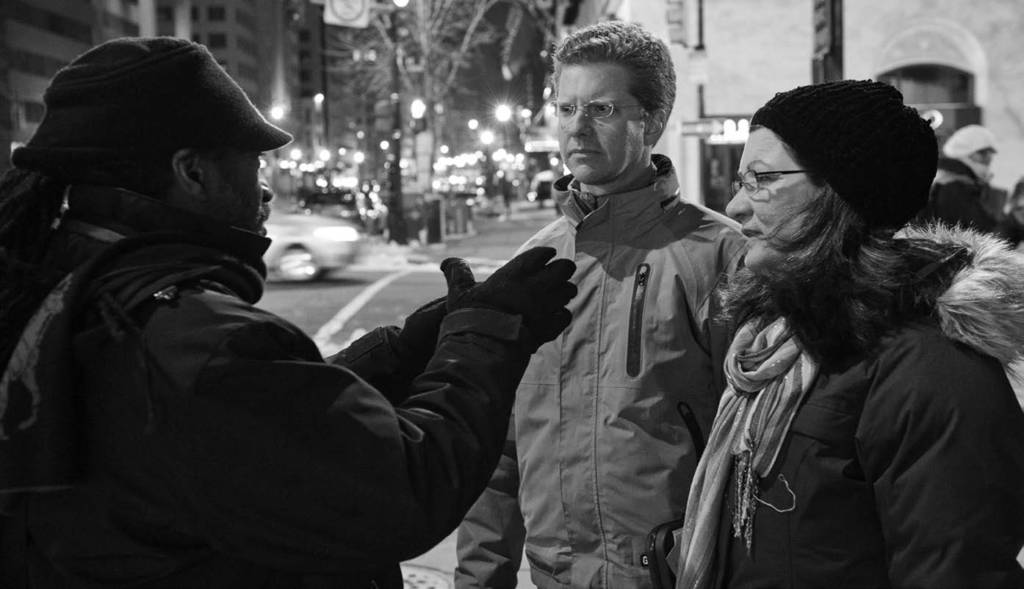Barbara Poppe was appointed Executive Director of the U.S. Interagency Council on Homelessness (USICH) in October 2009. In June 2010, the USICH launched Opening Doors, the nation’s first-ever comprehensive strategic plan to prevent and end homelessness. Prior to working for the federal government, Poppe was the executive director of the Community Shelter Board (CSB), in Columbus, Ohio, from October 1995 to November 2009. She recently agreed to an interview with Street Sense co-founder Ted Henson.
SS: Do you view housing as a human right and if so, what are the policy implications?
BP: From my earliest days of activism in Cincinnati, I certainly have advocated my personal belief that we should have a right to housing. It’s a basic human need and in a country as affluent as ours a right to housing should be a part of what we provide to all citizens. That is not the situation that exists in our states or across the country. Short of a right, we certainly are trying to get as great as access to housing that’s safe, decent and affordable as possible. But that, as you know, is a really uphill struggle because there is such a political divide on that particular issue.
SS: In your view is there a link between the criminalization of homelessness and hate crimes and violence against the homeless?
BP: We certainly are really distressed about the criminalization of homelessness across the country. We actually had a summit on this topic about a year ago. We will soon release a report on the findings of that summit and recommendations for alternatives to criminalization.
This is definitely a very important topic and certainly related to that is the hate crimes issue. The reason that I believe that they are related is that when we as a society criminalize these acts that people need to do in public because they don’t have access to safe, decent and affordable housing, it doesn’t set the tone that they aren’t deserving of this treatment and I think that it may lead into hate crimes.
I don’t know enough about the psyche of those who do perpetrate these hate crimes but I believe that if we in fact housed everyone and there were not homeless people on the street, which is the best solution as an alternative to criminalization, then we certainly would not be seeing the kind of experiences that are happening across the country.
SS: Opening Doors is the first plan of its kind at the federal level. How are you meeting the goals of the plan, most notably ending chronic homelessness by 2015?
BP: As a result of the Recovery Act investment through the the Homeless Prevention and Rapid Rehousing Program (HPRP), the most recent HUD data show that 1.2 million people had been prevented from or assisted as they were experiencing homelessness. So it was great to see the impact that it had in terms of the number of people and households that were assisted.
(According to) the last point-in-time count though, the progress on chronic homelessness is slowing. We’re still making progress but it’s not happening as quickly as it was in the early years of communities adopting the practices of getting folks into permanent supportive housing as the most effective solution to ending chronic homelessness.
So we certainly are concerned and we’re devoting considerable energy even as we speak into looking at which communities were successful in making continued reductions in homelessness, which communities weren’t, what we can learn from those communities, and what seems to be the kind of practices that are necessary to maintain reductions because we are very committed to ending homelessness by 2015.
SS: At the federal level, what are some of the challenges that you have in implementing the plan to end homelessness?
BP: The greatest challenge to implementing the plan has been the continued economic recession that so many communities are feeling. Across the country, recessionary impacts have resulted in reduced state and local public budgets as well as decreases in charitable giving in many places. Local communities are really struggling to move forward with the implementation of the Opening Doors Plan because they’ve got some resource constraints.
On the positive side, because they’ve got resource constraints, many communities are looking at what are the most effective and efficient best practices because they have an eye towards what type of progress can you make in light of those tight challenges. The good news for many local communities is that they’ve received some increases in federal homeless assistance and so despite the reductions from state and local governments, the federal government has come forward with increased investments.
SS: Can you explain how the plan represents a shift in previous thinking at the federal level? Is what you are doing a continuation of tried and true strategies or a break from the past?
BP: I came into this position from working in Columbus, Ohio, and we were fortunate to be one of the grantees under the prior administration’s Chronic Homeless Initiative. It was great because it was new funding that our community could use.
But the greatest disappointment that we had in working under that grant was that there was not actual collaboration at the federal level. When a barrier would be identified with local implementation we would go back to the Council staff, they were not able to get issues resolved with federal partners…I think that we’re beginning to make some progress against some pretty tough headwinds in terms of lack of prior collaboration.







